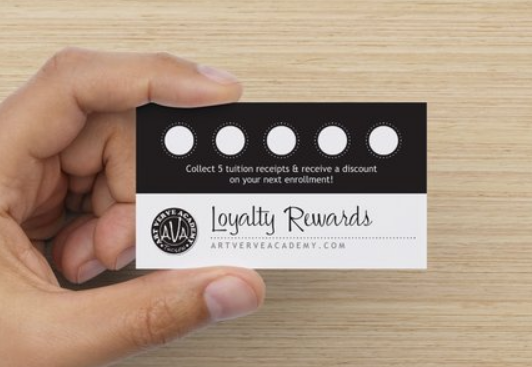Whether you are an absolute beginner or novice, find an adult weekly art class or workshop in Tucson that will take your skills to the next level!

Studio Art Classes in Tucson, Arizona
We offer art classes for adults within a hands-on studio environment in Tucson.
| Quicklinks | ||
|---|---|---|
| Our Carousel | Our Curriculum | Gift Certificates |
| Get Started Today! | Admissions | Loyalty Rewards |
Our Carousel
Our schedule is designed like a carousel. If you missed a course you wanted to take, it will be offered again later in a future season or semester.

Seasons or Semesters
Our planned semesters are in the fall and spring. New classes or workshops are usually available at the end of June or by the end of November.
Since Tucson is seasonal, we do not hold in-person courses in June or July.
Updated December 1, 2024
In-Person Learning
Leaning in person is a traditional process in which the learning environment is created within the physical walls of a classroom or studio environment, where the instructor and learner are physically present together. It has the following advantages of formal learning.
- It may employ any type of presentation, such as visual, tactical, auditory, etc.
- It promotes interaction or networking among the learners or participants.
- Interactions between participants, instructors, and other participants are in real-time.
- It fosters a relationship between the instructor and the learner, which helps fulfill a mentor-mentee-type relationship.
Formal learning is a deliberate way of attaining a skill in a classroom or studio environment. The term formal learning has nothing to do with the formality of the learning but rather the way it is directed and organized. The instructors set out the goals and objectives of the learning.
Art Classes vs. Workshops
In Person Weekly class sessions are 3 hours long, with 15-minute or periodic breaks. The start-to-finish times are listed in the course description.
In Person Workshop sessions are usually all day, from morning to afternoon, including a 1-hour lunch break. Specific terms and conditions will be listed below the event description, which may or may not include a non-refundable deposit.
Updated December 20, 2024
Self-Directed or Open Studio
Weekly classes in an open studio format or independent study are perfect for those who want feedback, inspiration, or the vitality of working with other creative individuals. The instructor will guide you in finding your visual voice, achieving your artistic vision, or cultivating creativity. Informal learning has the following advantages.
Observational learning occurs when instructors demonstrate their approach, craft, or tools.
Experimentation or play is a form of learning. Adults may learn visual art skills by experimentation or when the instructor allows them to play.
Incidental learning occurs partly as a product of active involvement.
Social Learning is a type of social behavior that proposes new skills that can be acquired by observing and imitating others in a social situation. This learning requires a social model like other learners, peers, or instructors.
Updated December 20, 2024
Virtual or Live Online
"Live Online" events are held in real-time via Google Meet or Zoom from home. Professional feedback or personalized instruction is intended for adults or older teens who can work independently.
Updated December 20, 2024
Our Curriculum
We embrace a learner-driven curriculum to attract and keep our community meaningfully connected.
2D Visual Art Techniques
We offer adult studio art classes in Tucson, Arizona in the following 2D Visual Art techniques. We put learners at the center, which is the key in shaping our curriculum.
- Drawing or Sketching
- Painting
- Mixed Media
- Printmaking
- Design
Updated December 20, 2024
Drawing or Sketching
We offer drawing or sketching classes for adults in Tucson, Arizona in the following mediums.

This includes following drawing mediums:
- Charcoal or Graphite
- Colored Pencils
- Graphite or Pencil
- Pastel Pencils
- Pen & Ink
- Sanguine
Drawing Classes listed as "Open Medium"
When a drawing class is listed as "Open Medium," any of the following are welcome: charcoal, graphite, or pencils. Please check the course description for specific details.
Updated December 1, 2024
Painting
We offer painting classes for adults in Tucson, Arizona in the following mediums.
- Acrylics
- Inks
- Oils (Oil Paint)
- Opaque Watercolor (Gouache)
- Pastel Medium
- Watercolor
Painting Classes listed as "Open Medium"
When an "Open Medium" class is advertised for drawing techniques, any of the following are welcome: oil paint, acrylic, watercolors, or pastels. Please check the course description for specific details.

Updated December 1, 2024
Printmaking
We offer printmaking classes for adults in Tucson, Arizona in the following techniques.
- Monoprints
- Monotypes
- Trace Monotypes

Updated December 1, 2024
Subjects Matter
We offer adult studio art classes in the following 2D Visual Art subjects.
- Abstract
- Animals / Wildlife
- Figure or Portrait
- Landscape
- Still Life or Floral
Updated December 1, 2024
Purchase a Gift Certificate
Give the gift of art. Purchase a gift certificate for someone special.

Click here or click the button below to purchase a gift certificate!
Admissions
Explore admission requirements.
Who Are Our Courses For?
Whether you are an absolute beginner, novice, intermediate, or professional, you will find an experience with us in Tucson that will take your skills, knowledge, or understanding of 2D Visual Arts to the next level!
Updated December 1, 2024
Reasons for Adults to Take an Art Class?
1. Be a Lifelong Learner
Sketching, drawing, or painting is not a talent you are born with; anyone can learn with some basic instruction and practice.
2. Create Something
Finish a piece to show or give to someone.
3. Practice Your Skills
Make time for cultural activities or get support from a community to nurture or practice your skills!
4. Try Something New
You may surprise yourself or uncover hidden passions that you did not know you had.
5. Find Inspiration
Surround yourself with other creative types who will inspire you.
6. Explore, Experiment, or Play
Expose yourself to new environments, make a mess, experiment with new techniques, or enhance your open-mindedness.
6. Find Your Voice
When you learn under the guidance of a professional instructor, they will encourage you or get you unstuck.
8. Exercise Your Brain
Enhance motor skills, hand-eye coordination, problem-solving, lateral thinking, complex analysis, or critical thinking skills.
9. Socialize or Connect
In-person classes or workshops are excellent opportunities to get to know others with similar interests!
10. Relieve Stress
It's important to remember to take some time for yourself.
Updated December 15, 2024
Adults
Adults over 18 may enroll in any class, workshop, or event.
Non-Adults or Youth
We do not have a youth program at this time.
Updated December 1, 2024
Pre-requisites?
We are vocational educational service provider. There are no prerequisites to get started.
Individual or one-on-one feedback is always provided to accommodate anyone as everyone is at a different skill level.
Recommended Levels
Anyone of any skill level may enter based on their comfort level, no prerequisites are needed. The level for each course is advised in the course description. Click here to assess your skill level or read the description of each.
Updated December 1, 2024
Live as if you were to die tomorrow. Learn as if you were to live forever.
Mahatma Gandhi
Your Journey Awaits!
Follow these simple steps to get started today!
Submit Your Contact Information
If this is your first class with us, please complete this one-time required admissions form before the first session.
If you skip the online completion, we can give you a hard copy to fill out in person.
Updated December 15, 2024
Assess Your Skills
Depending on your comfort level, you may enter any class. Each class description will recommend a skill level.
Skill levels vary depending on knowledge, understanding, or practice. Below are definitions or guidance on what level to look for when registering or enrolling.
- Absolute Beginners may have never been inside an art supply store or need guidance on what materials to purchase. They may have never taken art classes or be unfamiliar with tools, techniques, or studio equipment.
- Beginners to Intermediate - Have some prior experience or have taken some classes.
- Intermediate - Is a novice or comfortable practicing within a studio environment.
For those who need help figuring out where to start, look for anything marked as "Absolute Beginner."
Updated December 15, 2024
Enroll
Enrollment happens online and is required to attend any class or workshop. It reserves your seat and ensures the instructor is prepared for your arrival with handouts, materials, etc.
Visit the course catalog to see what is currently available.
Waitlist
You may join a waitlist if your desired class has a full enrollment. Submit the form, and we will contact you if anyone drops from the roster.
Updated December 15, 2024
Receive Communications
Depending on how you chose to be contacted when you registered or enrolled, the instructor or administration may email, text, or call you with information or updates about your class, workshop, or event. Please check your spam folder, email, or phone for text or voice messages.
Updated December 15, 2024
Our Loyalty Rewards Program
If you've taken five classes with us within a one year period, you are elliagable to receive the next class free!

|
Note that you must keep track of your own enrollments to receive the Loyalty Rewards free class discount. Ask for a punch card to help you track your progress.
Tell me, and I forget, teach me, and I remember, involve me, and I learn.
Benjamin Franklin